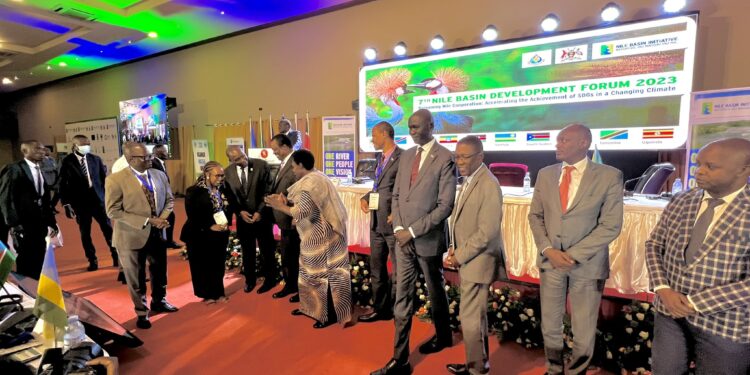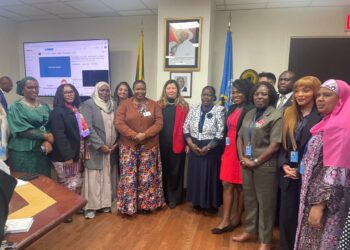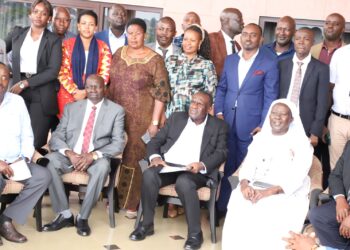President Yoweri Kaguta Museveni has urged Egypt to shift its focus from strictly adhering to the Nile Waters Agreements, which have constrained the equitable use of the river across the basin, towards increasing the quantity of water in the Nile.
Represented by the Vice President Jessica Alupo at the 7th Nile Basin Development Forum at Commonwealth Resort Munyonyo, Museveni emphasized the importance of prioritizing greater water volume in the Nile, particularly highlighting the Khartoum Agreement.
He believes that a shift towards environmental conservation and protection will bolster the Nile’s water volume, enabling all basin countries to use the river equitably for production.
This approach could lead to heightened production and increased utilization of clean energy sources like electricity, benefiting the basin while reducing biomass energy usage and safeguarding biodiversity in the Nile River catchment area.
The utilization of Nile River waters has long been a contentious issue between downstream and upstream countries, resulting in various agreements, none of which have garnered unanimous approval from all basin countries.
The primary disputes revolve around two key agreements. The Anglo-Egyptian Agreement of 1929 allocated 48 billion cubic meters of Nile water annually to Egypt, with Sudan receiving 4 billion cubic meters within the same period.
This accord also granted Egypt veto powers over construction projects on the river and its tributaries to minimize interference with the Nile’s flow.
Recently, there has been a standoff between Egypt and Ethiopia over Addis Ababa’s decision to construct a dam on the Nile.
The other significant agreement is the renowned Khartoum Agreement of 1959, a bilateral pact between Egypt and independent Sudan, which increased water allocations to 55.5 billion cubic meters for Egypt and 18.5 cubic meters for Sudan.
These agreements collectively constitute the “Nile Waters Agreements,” upon which Egypt has long asserted its rights to Nile waters.
Upstream nations, including Uganda, have contested the adequacy of these agreements, asserting that they were not adequately represented and have distinct requirements for the river’s water.
It is important to highlight that the Nile is estimated to generate 84 billion cubic meters of water annually, serving a basin population of approximately 487.3 million people.
President Museveni’s comments coincide with Egypt’s reduced involvement in the Nile Basin Initiative (NBI), an organization it played a role in founding back in 1999.
While the NBI protocol was endorsed by all basin countries except Eritrea to bolster cooperation on shared Nile basin water resources, a more comprehensive legal and institutional framework known as the Cooperative Framework Agreement was conceived to further cooperation and unity among NBI members. However, only six out of the ten NBI member states have ratified this agreement.
During the same gathering, Prof. Patrick Loch Otieno Lumumba, also known as PLO Lumumba, a distinguished Pan-Africanist and scholar, urged the NBI to extend its engagement beyond conference rooms and offices, advocating for a grassroots approach to directly address concerns affecting ordinary people in the region.
He underscored the necessity for experts to collaborate directly with those impacted by decisions regarding the river.
Furthermore, Lumumba called for deeper transboundary cooperation among basin countries, urging each state to consider the repercussions of its projects on the Nile and its neighboring nations, emphasizing the collective responsibility for judiciously utilizing the river’s resources.
Museveni’s advocacy for a reevaluation of these agreements signals a potential watershed moment in the protracted negotiations surrounding the Nile’s waters, offering a fresh perspective on equitable resource distribution in the basin.
Do you have a story in your community or an opinion to share with us: Email us at editorial@watchdoguganda.com













